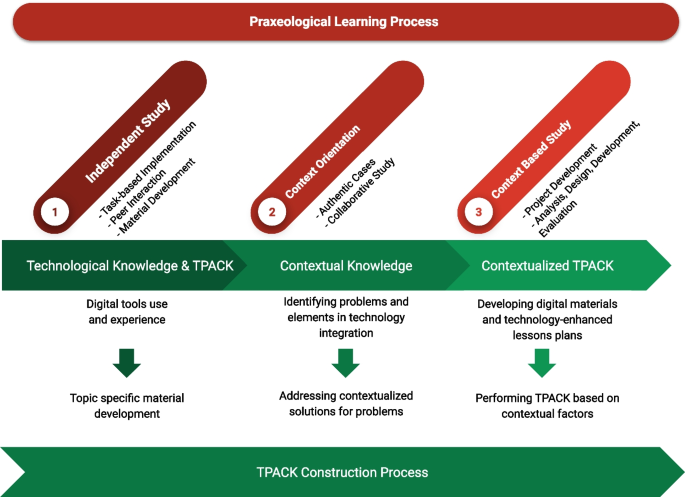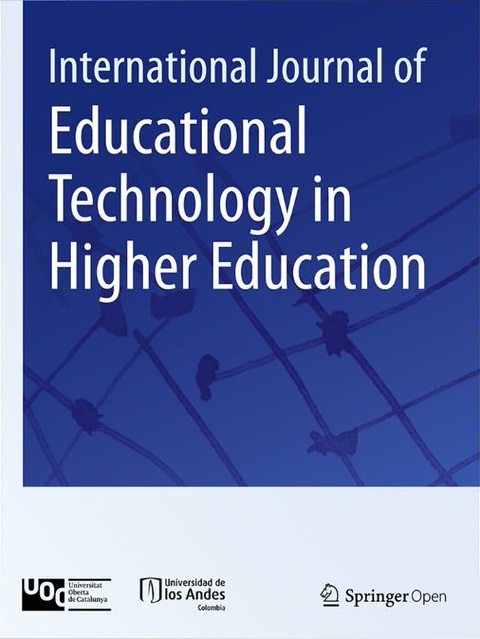Praxeological learning approach in the development of pre-service EFL teachers' TPACK and online information-seeking strategies
IF 16.7
1区 教育学
Q1 EDUCATION & EDUCATIONAL RESEARCH
International Journal of Educational Technology in Higher Education
Pub Date : 2023-09-25
DOI:10.1186/s41239-023-00421-6
引用次数: 0
Abstract
Abstract This study is purposed to implement and test a praxeological learning approach to enhance pre-service EFL teachers’ technological pedagogical content knowledge and online information-seeking skills. This study was conducted based on a convergent parallel mixed design involving thirty-seven sophomore pre-service EFL teachers. Multiple data collection tools were administered at the beginning and end of the course, and data were analyzed aligning with quantitative and qualitative methods complementarily. Active and decisive participation of the pre-service teachers shaped the course design following the sections of independent study, context orientation, and context-based study within the Technological Pedagogical Content Knowledge Framework. Findings showed that pre-service teachers’ technological pedagogical content knowledge and online information-seeking strategies of evaluation, selecting main ideas, and trial & error were significantly improved. Praxeological learning, following the Technological Pedagogical Content Knowledge Framework step-by-step and highlighting context-sensitivity, scaffolded pre-service teachers’ knowledge construction cumulatively and provided them with authentic learning experiences. The praxeological learning approach can support long-term motivation for technology integration knowledge and skills acquisition for pre-service teachers’ future careers.

行为学学习方法在职前英语教师TPACK与在线信息寻求策略开发中的应用
摘要本研究旨在实施和测试一种行为学学习方法,以提高职前英语教师的技术教学内容知识和在线信息搜索技能。本研究以37名大学二年级职前英语教师为研究对象,采用融合平行混合设计。在课程开始和结束时使用多种数据收集工具,对数据进行定量和定性相辅相成的分析。职前教师积极而果断的参与塑造了技术教学内容知识框架中独立学习、情境导向和基于情境的学习部分的课程设计。研究结果表明:职前教师对技术教学内容知识和在线信息寻求策略的评价、选取主旨思想和试用;误差明显改善。行动学学习以技术教学内容知识框架为指导,循序渐进,突出情境敏感性,为职前教师的知识建构提供了积累式的脚手架,为教师提供了真实的学习体验。行为学学习方法可以支持职前教师未来职业生涯中技术整合知识和技能习得的长期动机。
本文章由计算机程序翻译,如有差异,请以英文原文为准。
求助全文
约1分钟内获得全文
求助全文
来源期刊
CiteScore
19.30
自引率
4.70%
发文量
59
审稿时长
76.7 days
期刊介绍:
This journal seeks to foster the sharing of critical scholarly works and information exchange across diverse cultural perspectives in the fields of technology-enhanced and digital learning in higher education. It aims to advance scientific knowledge on the human and personal aspects of technology use in higher education, while keeping readers informed about the latest developments in applying digital technologies to learning, training, research, and management.

 求助内容:
求助内容: 应助结果提醒方式:
应助结果提醒方式:


